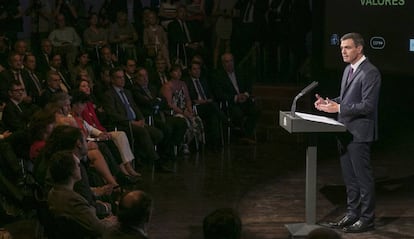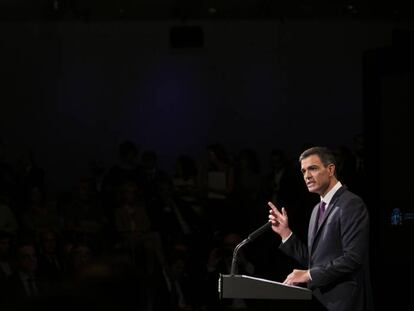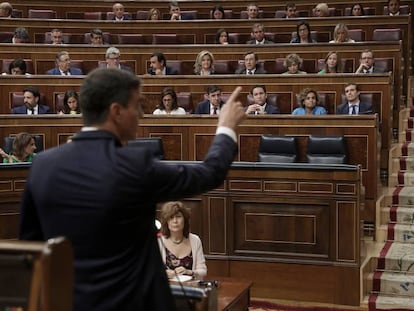Not so fast, prime minister
Pedro Sánchez’s planned reforms to the protection that Spanish politicians are afforded from the lower courts is a short-sighted political play

Reforming the fundamental laws of the Spanish state requires time, detailed debate and broad consensus, as the Constitution itself sets out. The urgency with which Socialist Party (PSOE) Prime Minister Pedro Sánchez has suggested changes to the legal status of aforamiento – immunity from the lower courts for elected officials and judges – which he wants to see implemented in just 60 days, does not respect these guidelines, but instead represents a short-term political play.
In reality, this surprise announcement was not aimed at meeting a citizen demand, or at solving a pressing problem with Spain’s constitutional system
In reality, this surprise announcement was not aimed at meeting a pressing citizen demand, or at solving a major problem with Spain’s constitutional system. His goal was different: to take the political initiative away from Albert Rivera following two recent moves of great dramatic effect by his Ciudadanos party, which deliberately blurred the boundaries between political astuteness and an “anything goes” approach.
Ciudadanos’ first move was to break the governing pact they were in with the PSOE in Andalusia, using improbable excuses, in an effort to force early elections. And then came the congressional question regarding Sánchez’s doctoral thesis, which stretched parliamentary regulations with the goal of turning the lower house into a sounding board for political propaganda.
The prime minister’s initiative will prosper at the desired speed, or it will not, depending on the attitudes of other parties – governing in a minority, he needs cross-party support to get anything done. Left-wing Unidos Podemos has already announced its intention to demand a public referendum to validate any decision made by the chamber, if indeed any is reached. This means that the reforms could be definitively paralyzed, or either delayed until new majorities emerge, or a more propitious moment arrives.
The prime minister’s initiative will prosper at the desired speed, or it will not, depending on the other parties’ attitudes
But this is not the greatest political cost of such an inopportune initiative, which was announced on Monday during the celebration of Sánchez’s first 100 days in government. After witnessing the political skirmishes over politicians’ academic qualifications, and the alleged university corruption that these have revealed, citizens might have expected parliament to finally address the situation of higher education in Spain. On the contrary, Sánchez has used the bickering for electoral ends, to make Ciudadanos choose between its promises of democratic renewal and its refusal to reform the Constitution. The conservative Popular Party (PP), meanwhile, is having to face up to the fact that their new leader, Pablo Casado, has a glass ceiling over his head for as long as the Supreme Court is investigating the alleged irregularities surrounding his master’s degree.
There is nothing objectionable about Sánchez wanting to unmask the political sophistry used against him by his adversaries on the basis of public opinion rather than reliable information. But his use of the Constitution to that effect is unacceptable.
English version by Susana Urra.









































